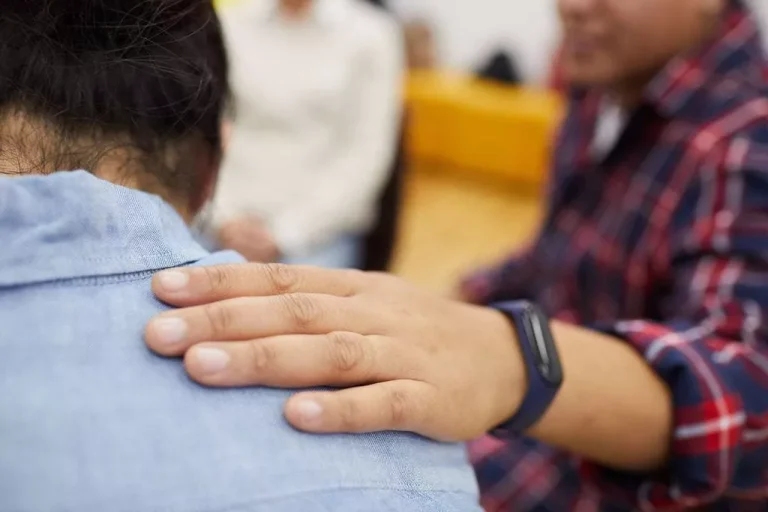
In the inpatient setting, nurses perform frequent assessments that inform the treatment plan. Serenity Light offers 24/7 medical support to ensure the safety and well-being of patients undergoing alcohol withdrawal. While these herbs are mentioned in various sources for their potential benefits, it’s important to note that self-medication with herbal supplements can be risky. Interactions with medications, underlying health conditions, and the severity of alcohol withdrawal symptoms necessitate a careful and informed approach. Individuals seeking to use herbal supplements as part of their recovery process should always consult with healthcare professionals to ensure safety and appropriate use.
Care Agreement

Understanding that each individual’s journey alcoholism symptoms with alcohol dependence is unique, Serenity Light offers personalized treatment plans. Our multidisciplinary team works closely with patients to develop customized strategies for managing alcohol withdrawal and achieving lasting sobriety. The exact mechanism whereby acamprosate decreases alcohol use is unknown, but it’s hypothesized that it modulates hyperactive glutamatergic NMDA receptors.
- All outcomes were reported for the short term (4 weeks or 1 month), medium term (more than 4 weeks or 1 month to 12 weeks or 3 months), and long term (more than 3 months).
- In another study (Cruickshank 2008), participants were administered 15 mg of mirtazapine on the first two nights and 30 mg mirtazapine every night for the next 12 nights.
- Benzodiazepines, commonly called “benzos,” are a class of sedatives that are frequently prescribed for bouts of panic, anxiety, and can even be used to manage certain types of seizure disorders.
- They also drank less each day, had less heavy drinking days, and reported fewer cravings for alcohol.
- However, without alcohol as a means of coping, emotional challenges can become more apparent, and you’ll be forced to confront your issues and triggers without the crutch of a depressant.
FAQs: Non-Benzodiazepine Medications for Alcohol Withdrawal

Keith Heinzerling provided feedback on the data analysis and assisted in cutting back on alcohol symptoms writing the discussion section. Comparison 1 Any pharmacological treatment versus Placebo, Outcome 4 Average score in craving. The average score in global state was reported in three of the four included studies. One study was judged to be at low risk of bias and three studies were judged to be at unclear risk of bias.
More on Substance Abuse and Addiction
Should symptoms worsen, patients and their support person should be instructed to present to the emergency department for evaluation and further treatment. Following alcohol cessation, alcohol withdrawal syndrome typically presents as minor symptoms such as mild anxiety, headache, gastrointestinal discomfort, and insomnia. This syndrome can further progress to severe manifestations, such as alcohol withdrawal delirium, which poses significant diagnostic and management challenges. Mild symptoms may progress to alcohol hallucinosis, characterized by visual or auditory hallucinations that usually subside within 48 hours after alcohol cessation.

Is Coffee a Drug?
These symptoms could be mild or intense, depending on the severity of your addiction to alcohol. If you have been a heavy drinker for a long time, detoxing in a rehab facility is recommended to ensure a medical staff is available in case of complications. Medications like anticonvulsants (e.g., carbamazepine, valproic acid) and gabapentin stabilize brain activity, reducing the risk of alcohol withdrawal seizures.
- They can last anywhere from a few days to over a year, depending on factors like the medication, dosage, and how you stop taking it.
- Addiction and alcohol use disorder are complex conditions that affect the mind, body, and spirit.
- We offer various treatment programs designed to aid in your recovery, and can discuss options for both inpatient and outpatient support depending on your needs.
- Customizing the treatment approach at treatment centers close to you is essential to a successful recovery.
Depending on the severity of your addiction to alcohol, you may experience early-onset withdrawal symptoms. These symptoms could be mild (headaches, sweating, nausea, tremors) or they could be more severe (hallucinations or seizures). At Alcohol Awareness, we have specialists who are trained to support people from all walks of life with the withdrawal process, helping to make the journey away from alcohol as painless and productive as possible. For more information about medical support for overcoming alcoholism or for support with taking the first steps to quit drinking, contact us.

Stage 1: Minor Withdrawal (6-12 hours)
Addiction is a debilitating disease that impacts millions of US adults each year. Having a loved one who is suffering from substance use disorder is an incredibly difficult process to go… Unravel what causes money addiction, its impact, and how to seek help for a healthier financial future.
Understanding Over-the-Counter Aids for Alcohol Withdrawal Symptoms
- Support groups provide a sense of community with others who are facing similar experiences.
- “This is similar to semaglutide’s effect on food consumption in that we see people stop eating sooner, which is how people lose weight on semaglutide,” he says.
- Since primary care providers are now comfortable working with these weight loss medications, trying to use them for alcohol reduction and weight loss would be appealing to them, says Karnik.
- The goal is to not only navigate the withdrawal safely but also to lay the groundwork for sustained recovery and relapse prevention.
- Furthermore, traditional remedies like acupuncture are also referenced as natural interventions that could help regulate neurotransmitter levels such as dopamine, potentially reducing the urge to consume alcohol.
Although amineptine has limited benefits for amphetamine withdrawal, this drug has been withdrawn from the market. Mirtazapine has not been shown to be effective for amphetamine withdrawal, although the number of studies is limited. At present, there is no evidence to guide selection of medications that might relieve symptoms of amphetamine withdrawal for patients in initial abstinence from chronic amphetamine use.
